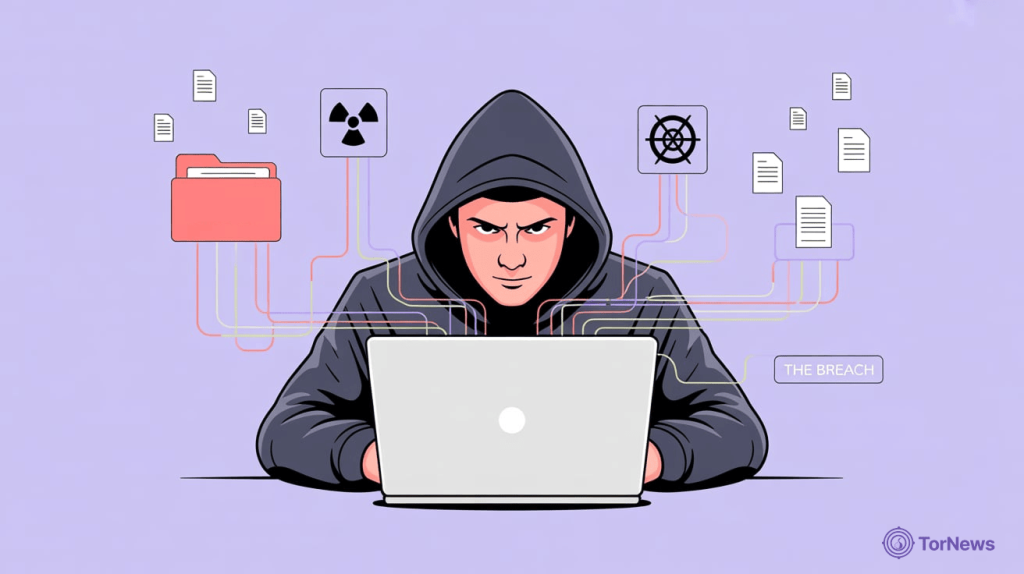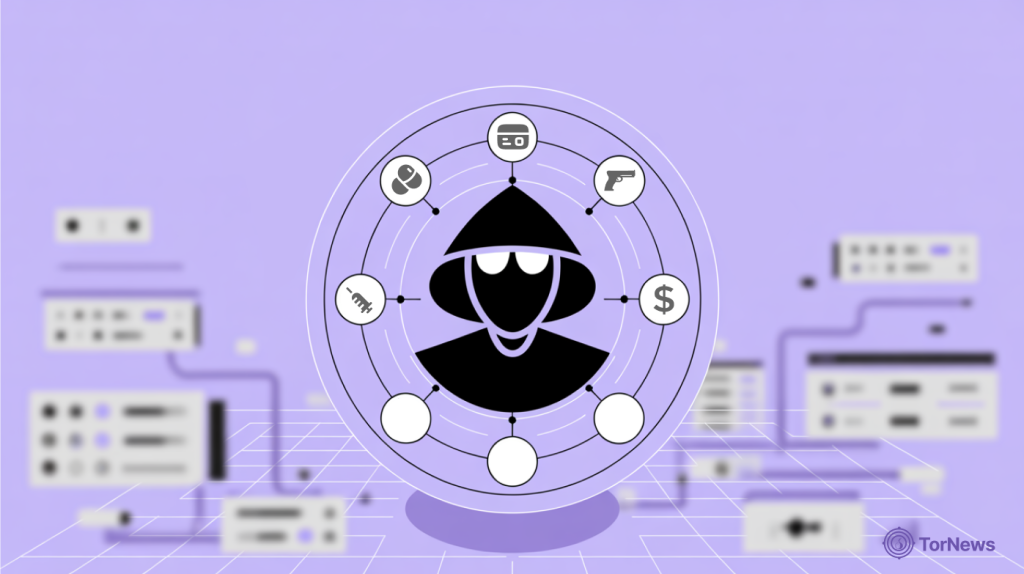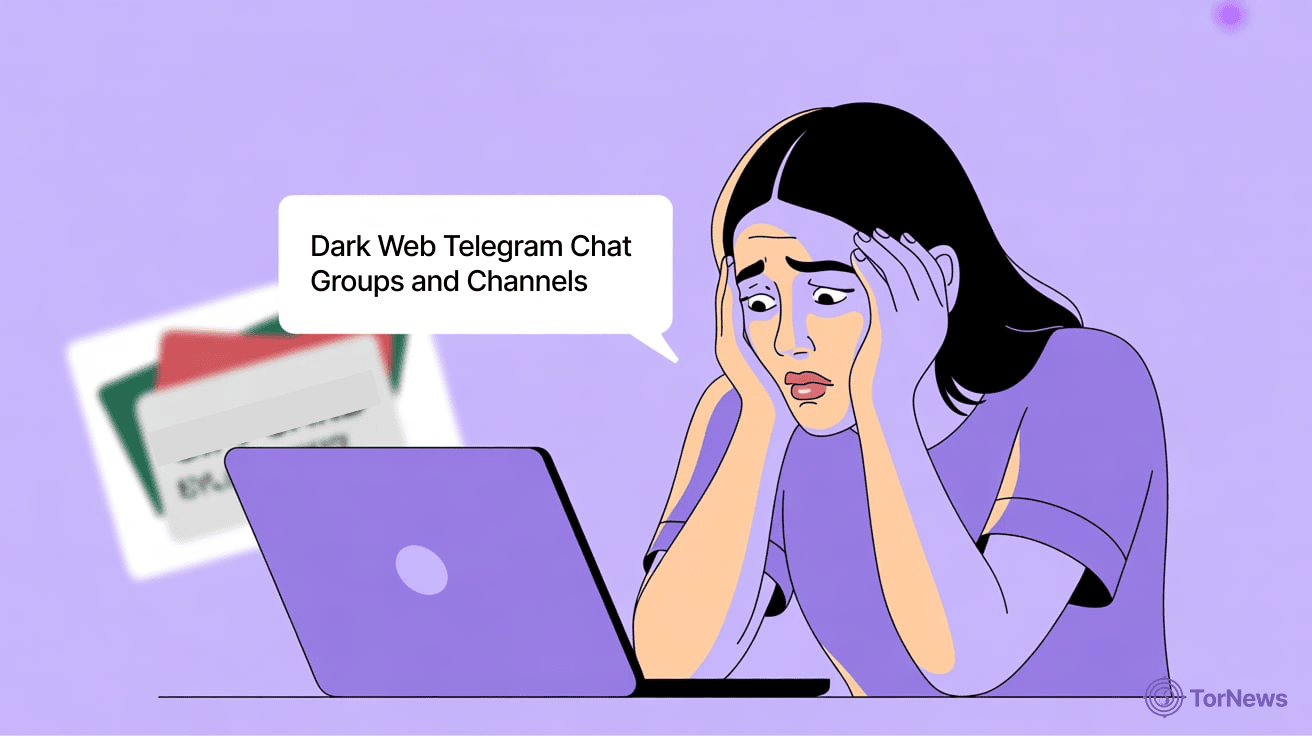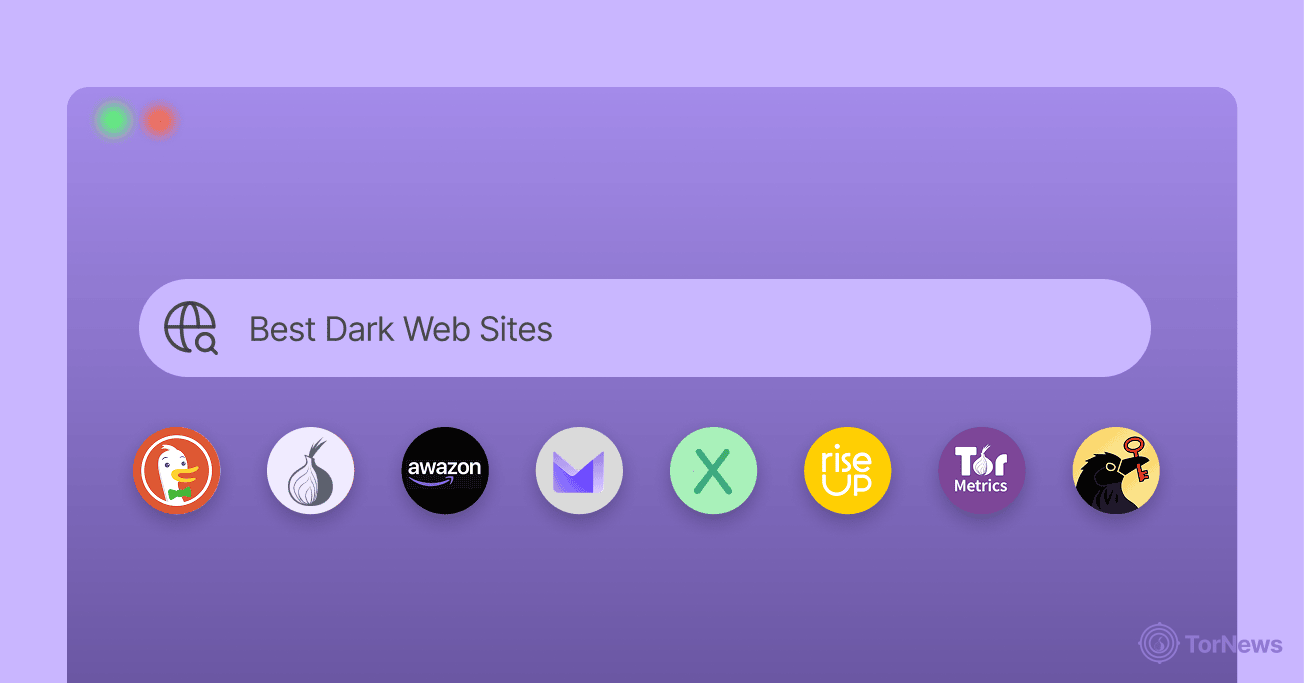The dark web often feels like the Wild West of the internet, a realm of anonymity, intrigue, and lurking danger behind every corner. Exploring it can be thrilling, much like riding a rollercoaster: exciting at first glance, but one wrong turn can land you in serious trouble.
People often venture into the dark web out of curiosity or for cybersecurity research, yet it remains a risky environment where caution is essential. While we don’t condone any illegal activity, understanding this hidden ecosystem is crucial for staying informed about the modern cybersecurity threats that emerge from it.
This guide explores the top 10 dark web markets and beyond for 2026, detailing their strengths, weaknesses, and the key trends shaping the underground economy today.
Important Note: This article (like all other content on TorNews.com) is for educational and cybersecurity research purposes only. We do not endorse or encourage any illegal activities. By knowing understanding how these illicit hubs operate, cybersecurity professionals, law enforcement, and organizations can better monitor threats, protect critical infrastructure, and safeguard users from the (ever-changing) dangers of the dark web. For everyone online, a critical first step in protecting your own privacy online is using a reputable VPN service like NordVPN to encrypt your connection and shield your personal data.
Top Dark Web Marketplaces – Quick List
- Awazon: With solid anti-DDoS protection and a no-JavaScript rule, this corporate-feeling market is a one-stop shop where you can find just about anything for sale.
- Trapify: A general-purpose illicit, darknet bazaar known for its wide variety of goods, from digital services to illicit substances.
- Vice City: Known for its flashy design, but its security checks can be frustrating.
- DarkFox: Organized vendor listings with a wallet system, but you’re gambling before the ship.
- White House: Strong PGP and Monero requirements makes it the privacy purist’s choice, though its strict rules add friction.
- Bohemia: Pitches itself as a “regulated” and quality-focused platform.
- Tor2door: Gateway to countless markets via sneakily simple doors – convenient but unstable.
- STYX: Tough vetting with Telegram updates – built for financial crime hustlers.
- Torzon: 11k+ listings, feedback with PGP proof, premium tiers – it is easy for criminals.
- Exodus Marketplace: Used to be famous for huge stealer logs—a cybercriminals’ goldmine of compromised data.
- Brian’s Club: Credit card dumps kingpin and hub of credit fraud. Focuses on a bidding process with frequent updates.
- Russian Market: English-friendly, sells dumps, RDP, logs—sketchy, but you can’t argue with the price.
- Exploit: The go-to auction house for buying initial access to corporate networks.
Why Darknet Marketplaces Still Matter

Think of them as the definitive underground market—a shadowy copy of eBay where, instead of vintage sneakers, you’ll find the raw tools of modern cyber threats: ransomware kits, stolen credentials, drugs, phishing kits, and even access to hacked corporate networks.
Perhaps, you could find one or two sites that trade pets, mostly weird animals, and some that are going extinct (illegal wildlife trades). But if you come across something bizarre, like a Dark Web Shop pets listing? Run.
Most of these purchases are made in cryptocurrency (Bitcoin, Monero (XMR), etc.), allowing you to keep your identity under wraps.
Typically, you’ll need a dedicated dark web browser like Tor (The Onion Router) to visit these illicit hubs, but some platforms have “mirror” sites on the clear web for convenience (or as a lure for the unwary).
One final wrinkle — the dark web economy is not nearly as unstoppable as it once appeared. Recent dark web statistics reveal a significant shift; for instance, businesses on the marketplaces made revenue of about $3.1 billion in 2021. By 2024, that number had decreased to only over $2 billion. That’s not chump change, it’s a billion-dollar drop. This fall came with much law enforcement activity.
The takedown of Hydra Market in 2022 was the largest to date. The Russian-language powerhouse was pulling in nearly $1 billion per year prior to its takedown. Since then, other notable markets have been taken down, like Genesis Market in 2023 and BidenCash in 2025.
The difference with these takedowns versus others is that, typically, shutting down a market means that it is shut down forever. However, it is common for criminal actors to have the same code pop up on a different server with new administrators (or even worse, the same actors and administrators just under a different name). The real impact comes in the trust factor; once a marketplace has been shut down, the buyer and sellers become uneasy.
The Present Condition of Dark Web Markets
At this stage, it is safe to say that the dark web still gets beaten out by Telegram, the platform on which criminals communicate in invite-only groups with anonymous accounts and encrypted messages.
However, this does not mean that the dark web is dead and gone. In fact, in 2024, some people shared estimates that showed that darknet markets produced revenue that amounted to $2 billion, even though many law enforcement agencies had been taking actions against the platforms.
The bottom line is that as long as people are still demanding to buy or sell illicit goods, tools for hacking, or people’s information that criminals steal online, underground storefronts won’t go away.
Best Dark Web Marketplaces Today – Detailed List
Some digital black markets focus on the usual suspects: drugs, counterfeit cash, and pirated materials. Others are simply the hub for cybercrime, where bad actors sell malware, logins they steal from others, ransomware, & access to networks that they have infiltrated to whoever pays the most.
Here’s our list of 17 marketplaces that are currently in charge of the dark web.
1. The Awazon Market
- URL 1: awazonevlc63543fjvtli35bk2iopdyyaaytkmmiop5avny6b24uljqd.onion/auth/register_now
- URL 2: awazonep3val6gxuzcl2ydllhnwb7quh5ynh76cyc3axkfoqhlbrb2id.onion/auth/register_now
- URL 3: awazone7gyw54yau4vb6gvcac4yhnhcf3dkl3cpfxkywqstrgyroliid.onion/auth/register_now
Often cited as the biggest market in operation today, Awazon feels more like the “corporate” version of a darknet store, clean, organized, and surprisingly easy to navigate. It is serious about DDoS protection, blocks JavaScript completely (a smart choice when it comes to security).
It lets you browse without revealing too much up front, and has listings ranging from digital goods to illegal drugs. But the value is in the interface – no messy code, and no lag time.
Vendors must be vetted before they join, and while scams still exist, the overall risk is still lower compared to completely open markets. Access is through the Tor browser, using a verified onion link. You do not have to be invited, but it definitely feels like a close network.
2. Trapify Market
- URL: http://trapify.dweb3.me
Trapify is among the newest e-commerce marketplaces on the dark web. The site ensures anonymity but unlike other similar platforms is accessible not only through The Onion Router but also using mainstream browsers without compromising privacy (all thanks to decentralized privacy-first tech the platform is built on). Trapify works on the principle of customer satisfaction and offers products in many different niches. Since it’s a hidden internet platform, users can find both legal and illegal goods here, including specialized electronics, vintage goods, as well as guns, drugs (cannabis, psychedelics, stimulants, etc), counterfeit items, and cracked software.
Trapify takes the privacy of its sellers and buyers seriously. For this reason, it offers many features, like a secure Escrow system to avoid scams. Plus, the payments are made in cryptocurrencies like BTC, XMR, and USDT, so this adds an extra layer of security. The website is easy to access; it has a simple and user-friendly interface.
The platform keeps getting popular for its services. But users (even the researchers) shouldn’t avoid the risks. Because of the nature of the goods offered on the platform, illegal transactions can put you in trouble. Also, these hidden services have a history of shutdowns, so you can never know when Trapify (like any other illicit market) shuts down.
3. The Vice City Market
- URL: http://vicecitkf7sv4aosm6xfa4yjpwellcuqyyxwearrz44ufdecdqwhulad.onion/
Vice City may be bright and flashy, but the site puts effort into keeping the troublemakers out. That’s why each visitor to the marker has to go through a CAPTCHA wall (good for preventing bot traffic, annoying for human traffic).
The invests in technology to fish out clone sites before they trap users. The listings include the usual dark web varieties of drugs, digital services, counterfeit documents, etc.
The interface is set up similarly to modern e-commerce sites – sleek menus, quick search filter options, and an easy checkout process. While it is still a relatively new and evolving illicit bazaar, it is attracting many vendors due to its low listing fees and a promise of an anti-scam system.
Each user must have Tor, and of course, the correct and validated onion address! Fake addresses are rampant in marketplaces on the hidden internet (dark web), so be careful.
4. DarkFox Market
- URL: http://7sdzmbd2645jf2afknowz67coktqxxrldble52sa5ep4g4wxu3zcfmad.onion/
DarkFox uses a wallet-model payment system you deposit crypto into the market (first), then spend it on anything that catches your eye. The wallet system means faster transactions, but also a higher degree of risk, as you are trusting the market with your funds.
DarkFox is widely regarded for its extensive vendor base, broken up into clear, well-defined categories such as narcotics and hacking tools. They have a surprisingly well-functioning search feature, which is something to be commended in the darknet. The layout is simple; no frills, no gimmicks, and no fluff—getting from the product page to purchase is quite simple.
Access is achieved through Tor, and while they have no PGP enforcement policy, many reputable vendors use it regardless.
5. White House Market
- URL: i76guoy77ickcyhazh4bf3hxad2sq2kpwbcopv4z54glq6ynaynvcgid.onion
If you are among those who value privacy over convenience, then White House Market is the place for you. To say that White House Market is the most anonymity-focused market in darknet history is an understatement, as it enforces PGP for every message and accepts only XMR (no Bitcoin).
White House Market has a clean and functional UI and many detailed stats and feedback for the vendors to help buyers make safer and confident buys. Payments always go through escrow, and many vendors can set up personal domains for their regular customers. The very strict rules create a bit of friction, making casual shopping slower, but the place is a favorite among shoppers with a serious commitment towards OPSEC.
6. Bohemia
- URL: http://bohemia65jifi6rj3dcvu23tks5teidk6wllndg62vb37f57e6ymtgid.onion/
Bohemia is a new underground storefront that is trying to offer a more “regulated” shopping experience on the dark web. It combines a modern interface with vendor fees and tiered access in an attempt to weed out fly-by-night sellers.
The categories include the same suspects we know best: drugs, counterfeit docs, and tools for hacking. But the site pitches the quality of its vendors’ products over the volume of vendors. Payments run through escrow, and it is reported that its support staff are more responsive than in other markets. It can be accessed through a free dark web browser (like Tor Browser); they stress using verified links to avoid fake versions.
7. Tor2door Market
- URL: http://tor2dore7ufpezrcqaw6txolzo42bzh76i7ifydzkpbp23qhfocwpkid.onion
Taking its name to heart, Tor2door is like a gateway to illicit products and services. The design is purposely simplistic, which makes navigating around the site easy without drawing attention.
It supports multiple cryptocurrencies, has escrow functionality, and a vendor-friendly listing system. The categories range from drugs to digital goods to fraud services, so it is an easy place for many buyers to shop. You can only access it with The Onion Router Browser, and the team warns users about phishing clones.
8. STYX Marketplace
- URL: N/A
STYX is not just your regular carding site. It is a high-end cybercrime marketplace with a narrow focus on stealer logs, RDP access, bot logs, full identity kits, and other modern cybercrime items. The site itself is run on the clearnet while transactions and most operations happen over encrypted channels on Telegram; it’s convenient with a hint of caution.
The real-time updates, robust filtering structure, and Telegram-integrated communication give STYX an e-commerce feel. But there are drawbacks as well; the vendor screening is more stringent and is suspected to be monitored. Of course, with tighter verification comes higher monitoring, and maybe even targeted surveillance.
9. Torzon Market
- URL: https://torzon4kv5swfazrziqvel2imnxcckc4otcvopiv5lnxzpqu4v4m5iyd.top/index.php
Torzon is a large market with over 11,000 listings in all types of categories, including drugs and fraud tools. The market enforces vendor verification, and like other online duties, transactions, and trades utilize escrow to be safer.
The platform’s feedback system consists of reviews that are tied to PGP, making it challenging for fake reviews to penetrate. Torzon offers three premium tiers allowing high-volume sellers placement and additional functionality. It is accessed through Tor and has an active community forum for buying and selling exchanging tips.
10. Exodus Market
- URL: https://exodusmarket.io/login
Exodus has become a popular resource for cybercriminals concerning stealer logs and compromised accounts. Many people know the platform for having a large amount of stolen data, making it a go-to place for people who want to commit identity theft & fraud.
Its interface is easy for people to use, & it also offers a search function that makes it easy for anyone to find what they need. The marketplace uses cryptocurrency traded via escrow, even though many sales are made in bulk outside of the marketplace. Exodus operates on Tor and is invite-only for sellers.
11. Brian’s Club
- URL: https://brians.cc/register
Brian’s Club is one of the biggest hacker carding communities online because it is frequently updated, and the dumps are high quality. The interface has search filters including BIN, country, and bank. It provides the option to purchase in bulk or retail, making it easy for anyone to use, no matter whether they are committing smaller or larger-scale cybercrime.
It is active (and of course, there is massive law enforcement surveillance) and profitable for the vendor, Brian’s Club has become a tremendously well-known vendor hub for stolen credit cards. The site is accessed via Tor, and buyers on this site often use PGP (although PGP is not mandatory).
12. Russian Market
- URL: http://rumarkstror5mvgzzodqizofkji3fna7lndfylmzeisj5tamqnwnr4ad.onion/login
Russian Market is a low-cost cybercrime site providing access to RDP, logs, and stolen data products. It is one of the only major sites that has an English user interface, and is therefore more conducive to attracting international buyers.
The prices are lower than most of its competitors, and the quality control is variable. The transactions are in Tor, and escrow is available but not always used. Many use this site to buy compromised systems at a cheaper price.
13. Exploit
- URL: N/A
Exploit is a dark-web site that specializes in auctions for IAB/Initial Access Broker, essentially selling entry into compromised networks. Members enter bids for RDP access, VPN access, and even full domain admin access; some of the general bidding listings can sell for thousands of dollars!
This platform is primarily used to buy initial access to networks to use for future compromise. It identifies a rarer portion of advanced threat actors, penetration testers, and cybercriminals that seek advanced, targeted attacks. The site can only be accessed via Tor, and escrow is supported, but in many high-value deals, the buyer and seller transact directly with no escrow.
Historical or Defunct Marketplaces
The following black markets have been shut down successfully, but are critical to understanding the evolution and history of the dark web ecosystem.
Hydra Market
Hydra wasn’t just large; it was the leading Russian-speaking darknet marketplace for several years. Selling everything from drugs and fake documents to hacking tools, it had a complex delivery and escrow system that made it feel unassailable.
That came to an end in 2022, when law enforcement seized its servers and funds. Since then, there have been many clones and “successors,” but none have come close to its scale or trust. Nowadays, any other site that claims to be Hydra is a major red flag, but its legacy is still a critical part of dark-web lore.
Silk Road
Silk Road was the original pioneer that established the model for all modern underground, hidden internet markets. Created in 2011, it combined Tor’s anonymity, a Bitcoin escrow model, and a vendor feedback system into a marketplace, selling everything from drugs to books. The feds closed Silk Road in 2013, but its former activities have continued to be a template for illicit trade online.
Though the original market has stopped existing for a long time (and Feds even busted Silk Road 2.0 back in 2024), many markets borrow from its pattern, & scammers often try to parade fake “Silk Road” clones to lure users who are still missing the old ones.
Hansa Market
Hansa started out as a trusted, well-moderated market with vendor vetting, escrow, and a diversified product selection. It gained notoriety after law enforcement covertly took it over in 2017 and operated it for several weeks to gather user information before shutting it down.
This operation remains one of the most noteworthy examples of a darknet honeypot. Any “Hansa” you see today is a fake and is likely dangerous.
Dream Market
Dream Market was stable, had a long uptime, & offered many types of goods, including drugs, counterfeit money, and tools for hacking. It allowed users to enjoy PGP messaging, open escrow accounts, and make Bitcoin/Monero payments.
It became the target of recurring DDoS attacks in 2019 before eventually shutting down because of the noise of operational risk and expectation. Many buyers will fondly remember it as one of the most stable sites on the dark web, nonetheless.
BidenCash
BidenCash was well-known for offering stolen credit card information for free to generate publicity, a tactic that resulted in a big buzz and made it part of the cybercrime canon. They featured credit card dumps, fullz, and other financial information at cheap prices to lure in users.
The site worked on Tor (like all other onion markets), was easy to navigate, and had minimal sign-up requirements, but used verification steps for high-dollar transactions to mitigate scams. The style is very bold, but that can equally attract the attention of law enforcement. The platform was dismantled as the U.S. authorities successfully seized its domains in 2025.
Fun fact: While markets rise and fall, dark web forums often have more longevity. They serve as the community centers for discussion, reputation-building, and sharing information that fuels the entire underground economy.
Key Factors in a Dark Web Marketplace’s Operation
You must visit a dark net market for some research or legitimate reasons? Fine. But first, understand how a market operates and how to pick one without jeopardizing your security.
Choosing a dark web store is not as simple as picking a show to watch on Netflix. It’s more like defusing a bomb with your eyes closed. One slip and poof, your crypto is gone; it can even get worse. In order to keep yourself (fairly) safe, here are the things to look out for:
Security
- PGP encryption: This is not negotiable. If the site does not require vendors to use PGP for messages, forget about it. There is no need for some random admin to see your address.
- Escrow protection: The platform will hold the funds until you confirm that you have received the goods or services you paid for. Amazing, right? Even better is the Multisig escrow, where it takes 2/3 keys to release the funds.
- 2FA (Two-factor authentication): If your account doesn’t have this, it takes only one phishing link to compromise your bank account.
- JavaScript blocked: Any site that allows JavaScript is like a ticking time bomb. (Seriously, it’s that delicate.)
- Anti-Phishing codes: Does the site give you a personalized login phrase? If not, your password can be stolen by a fake mirror.
Note: Understanding these security features isn’t just for buyers. It’s also how companies perform dark web monitoring. And, our article, like all the content on TorNews.com, is aimed at that. By learning how markets operate and protect themselves, security teams can better spot when their company’s data is being traded.
Anonymity
- Tor/I2P availability: If you can only go to the site through some sketchy proxies or even worse, the Clearnet? It is either a honeypot or it is about to exit.
- Monero (XMR) acceptance: Bitcoin is traceable. XMR is not. Are you still trying to do BTC-only markets in 2025? Major red flag.
- Op-Sec guides: Will the platform itself and community provide guidelines on how to remain anonymous? Lack of community commitment to anonymity means they don’t care if you catch a charge.
- No personal information required: “Verify your ID to sell”? Yeah, that is not a marketplace but rather a police trap.
Reputation
- Vendor feedback: Look for vendors who have completed 500+ transactions and have 4.9+ ratings. If newbies say it was a steal? They are scams 99% of the time.
- Disputes redress: If you were fleeced, a good market should have active mods who can step in fairly quickly. If your dispute takes weeks to get started? Say hello to lost dollars.
- Forum review: Check Dread (Reddit’s dark web version). If there is a long rant of individuals complaining about exit scams or phishing. You should listen to them.
- Time in market: If a site has been operating for 6+ months and is still in business? That is super rare. Treasure it (but still assume that it will disappear tomorrow)
Usability
- Search usability: Searching with no vendor location or “cancellation ship” filter? Expect a lot of scrolling.
- Clean UI: If the marketplace looks like a GeoCities from 2005, expect a ton of coder errors (and hackers).
- Messaging system: Always ensure end-to-end encrypted communication on marketplaces. If the platform isn’t using some varied version of ProtonMail, then it’s a risky proposition.
- Notification alerts: Did you wait 3 days to find out you auto-canceled? Sad.
Range of Product Offering
- Enough variety: Are there 10 vendors of the same niche item? That ecosystem is dead.
- Ethical limits: Are there markets selling weapons, poisons, and worse? Skip it. (These markets are magnets for law enforcement and are ethically bankrupt.)
- “Too Good” listings: “$50 iPhone 15 Pro” or “Unlimited PayPal funds” mean “SCAM” every single time.
In summary, the “best” black market is the one that doesn’t steal users coins today. All this is risky. At first, you must not visit such stores. But if you must for some research reasons, assume that every site is temporary. Use PGP religiously, pay for everything in XMR. Never trust a vendor’s “100% feedback” without doing recent checks in forums. Your anonymity is only as good as your weakest click.
And seriously, if you are just doing research, you should use a burner laptop with a VPN and Tor. As for your main machine, keep it very far away.
Navigating Dark Web Markets: Your Field Manual
Any dark web activity, especially accessing these markets, is not for the faint-hearted. It’s for those who come prepared with the right armor. These are not “tips” – They’re armor for a warzone:
1. VPN + Tor: Order is Important
The Onion Router is the gateway to the dark web, a hidden network that sits within the much larger deep web. While it hides your activity, a VPN is crucial to hide the fact that you’re even using Tor from your Internet Service Provider (who may flag the activity).
Open and run your VPN, make sure there are no IP leaks, then Open Tor Browser. NEVER switch the order (Tor → VPN = false security).
Pro tip: Use a VPN service that works with “obfuscated servers” that make VPN traffic look like regular HTTPS.
2. Sandbox Like a Spy: No Exceptions
One bad ad or download with malware can hijack your main OS.
Use tools like:
- Tails OS (runs from USB, leaves no trace on hardware).
- Qubes OS (separates tasks in isolated VMs).
- VirtualBox (with a Linux VM + full disk encryption).
Important: Disable shared folders/clipboard between host and VM.
3. URL Cleanliness: Don’t Die by Clicking
Vet every URL:
- Use dedicated dark web search engines and directories (such as onionwiki.com) to find verified links.
- You can also check resources like Dark.site (look for its PGP-signed updates), Tor.taxi, Tenebris, or Dread forum links.
Watch out for fakes:
- Legit .onion URLs have 56 characters of jumbled letters and numbers (for example: facebookwkhpilnemxj7asaniu7vnjjbiltxjqhye3mhbshg7kx5tfyd.onion)
- Phishing sites use short, “brand-like” URLs (bohemia-market.onion = FAKE).
You can bookmark legit URLs. That way, you won’t have to search for them again.
4. Authenticity Checks: Trust NO ONE
- Using favicons: Legitimate markets allow you to select a custom .onion icon (e.g., red shield) – if their favicon is missing, you are on a clone.
- Using PGP-signed messages: Legitimate markets will sign announced messages with their public key (you can also check it using Kleopatra).
- Using “Sign-in history”: If your account shows sign-ins from 5 countries, then your account was compromised.
- Be careful of “Too Fast” support: Scam dark web sites will reply immediately to siphon your crypto.
5. Essential Security Tips for Using Dark-Web Markets
- Assume you are being watched: Law enforcement always lurks in the shadows, waiting to catch users; one careless move and you are busted. Never forget to connect your VPN first before venturing into any Tor dark market.
- Verify all PGP keys. If any vendor’s key is not signed, better avoid it.
- Stay cautious always and trust no one. Exit scams are the order of the day in the dark net marketplaces.
- Never reuse passwords. Dark web app tools like Bitwarden or KeePassXC are lifesavers.
Real-world threats, this helps protect against:
- Exit scams: Fake “maintenance” pages that are designed to steal your deposits.
- Wallet-draining: Malicious embedded scripts via product images.
- Phishing mirrors: Identical copies of sites (until you attempt to log in).
- Keyloggers: JavaScript hacks that steal your password.
Your Dark Web App Toolkit (No Substitutes):
| Tool | Why |
|---|---|
| Tails OS | Leaves zero forensic traces. |
| KeePassXC | Stores PGP keys/passwords offline. |
| Veracrypt | Encrypts burner device drives. |
| uBlock Origin | Blocks malware-laden ads (even in Tor). |
What the Future Holds for Dark Web Marketplaces

Cops and bad actors are both getting smarter tech-wise. Let’s take a look at some of the trends that are happening now:
Decentralization: The Hydra Model
If you cut one head off, two more grow back. Markets are moving to decentralized peer-to-peer networks like BitTorrent, with no central server.
They use P2P chats that are encrypted. Think of it like Session or Briar messenger for drugs/data; no server or middleman relaying your messages.
Smart-Contract Escrow: Trustless & Brutal
“Code is law” meets dark web deals.
Instead of admin-held escrow, some dark websites are now using blockchain-enforced smart contracts (e.g., Monero + Particle).
See how it works:
- The buyer will deposit Monero (XMR) into the contract.
- The vendor will then ship the product.
- The buyer confirms they have received the product, and then the funds are auto-released to the vendor.
- Should a dispute arise, then the contract will lock funds in escrow → and provide an option for 3rd-party arbiters (who get paid in XMR to judicially evaluate evidence).
The AI Arms Race
Defensive Use (Markets):
- AI Escrow Bots: If tracking shows “delivered” but you received an empty box, it automatically refunds.
- Vendor Vetting: Scans PGP histories + forum interaction to help flag scam vendors.
Offensive Use (Scammers):
- Deepfake Voice Scams: “Hi, this is Vendor X – send funds to this wallet!” (Audio taken from forum and cloned)
- Fake Reviews: AI-generated “verified buyer” posts everywhere on product pages.
And the sad reality is that AI tools will favor scammers first, particularly because those actors are willing to make things happen quickly.
Privacy Coins: Monero isn’t Good Enough Anymore
Monero (XMR) is still the champion, but new challengers are springing up:
- Zcash (if properly set up is safer)
- Firo (meme coin becoming more serious).
Marketplaces are ditching Bitcoin totally because it can be traced; platforms like Chainalysis trace everything.
The nightmare: Quantum computing can break XMR? Not yet, but research labs are testing things. It’s only a matter of time before they can crack it.
The Law Enforcement Counterstrike
Blockchain Forensics 2.0
- Tools like CipherTrace are now able to trace Monero mixer patterns.
- AI is now able to correlate vendor PGP keys with Clearnet leaks.
- Honeypot markets: Cops create fake markets “(DarkHarbor)” and arrest buyers.
- Supply chain attacks: hack the market code and deanonymize all of the users in a single swoop.
Who is Going to Win?
- It’s a stalemate: Markets adapt, becoming harder for cops to trace. Cops also adapt, learning better ways to connect the digital breadcrumbs.
- Your game plan for survival: Assume every transaction is traceable. If you’re not using Tails OS + XMR + burner hardware, you are on a payer platter.
Final Word
The dark web is not a digital paradise – it is a wild west where your data, crypto, and freedom hang in the balance. For every valid privacy advocate, there are probably 100 thieves, cops, and other con-artists ready to prey on you at the slightest mistake.
If you are pursuing curiosity, assume every link is poison. Burner hardware and Tails OS are not optional – they are your oxygen. Add some cash for Wi-Fi, and leave as soon as you finish your research. Don’t stick around.
If you are defending against threats: Encrypt everything to death – Veracrypt and PGP. Monitor the dark web dumps like it is your job (because it possibly could be – try HaveIBeenPwned and DeHashed). And never, ever reuse passwords – you must have KeePassXC for that. Never peruse Tor dark web markets without a VPN.
And lastly: Anonymity is perfection. If you ignore the VPN, click that “too good to be true” link, or believe a sob story from a vendor. Scammers, doxxers, or authorities could target and detain you before you even realize what’s happening. The only thing keeping your digital ghost past continuous is discipline.
FAQs
No, it is no longer active. Law enforcement arrested its administrator in 2017 and took down the illicit store, like many others on the dark web. The platform officially went offline in 2019.
To stay anonymous on dark web markets, use a trustworthy VPN like NordVPN for secure access. Beyond that, follow strict privacy practices — never share real personal information and always use a temporary identity and disposable email when creating accounts. Make payments exclusively through cryptocurrencies and avoid vendors or platforms that don’t support anonymous transactions.
Yes, dark web marketplaces continue to exist and evolve. Authorities often shut down many platforms for illegal activities, but new ones regularly emerge to replace them. Some active or recently used markets include Amazon Market, Vice City Market, Nemesis Market, and Empire Market. All marketplaces trade a wide range of items and services at competitive prices, each offering unique features and products.




